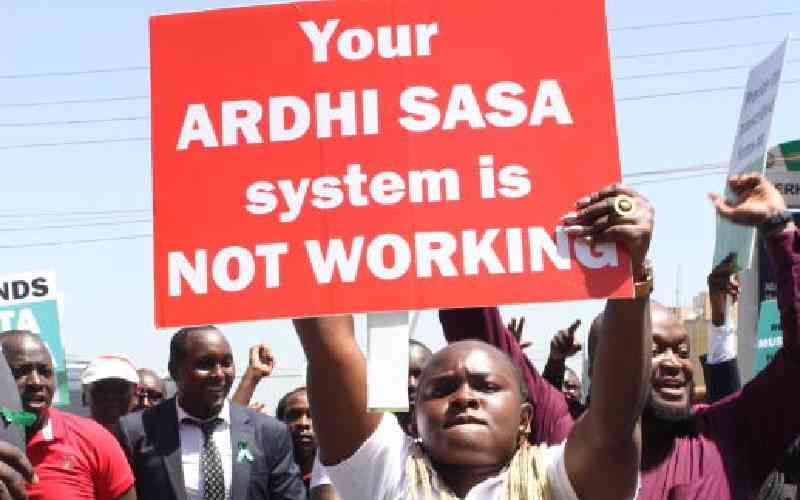×
The Standard e-Paper
Kenya's Bold Newspaper

There is no doubt that the invasion of "Northlands Farm" last Monday marked one of the lowest moments of the ongoing demonstrations and its natural partners, thuggery and civil unrest.
On that "machozi Monday", what appeared to be organised gangs, complete with power saws and boundary establishing implements invaded the farm, which is associated with former President Uhuru Kenyatta and started to cut trees and "subdivide" the land.